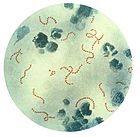International Census of Marine Microbes: Difference between revisions
Appearance
Content deleted Content added
Pbsouthwood (talk | contribs) Adding short description: "Field project of the Census of Marine Life" |
|||
| (11 intermediate revisions by 9 users not shown) | |||
| Line 1: | Line 1: | ||
{{ |
{{Short description|Field project of the Census of Marine Life}} |
||
{{Infobox organization |
|||
| |
|name = International Census of Marine Microbes |
||
|image = |
|||
| ⚫ | |||
|headerstyle = background:#ccf; |
|||
| ⚫ | |||
|labelstyle = background:#ddf; |
|||
| ⚫ | |||
|header4 = More Information |
|||
|website = [http://icomm.mbl.edu/ ''International Census of Marine Microbes''] |
|||
|label4 = All three defined (label) |
|||
|parent_organization = [[Census of Marine Life]] |
|||
|data4 = All three defined (data) |
|||
|header5 = |
|||
|label5 = Name: |
|||
| ⚫ | |||
|label6 = Established: |
|||
| ⚫ | |||
|label7 = Headquarters: |
|||
| ⚫ | |||
|label8 = Website |
|||
|data8 = [http://icomm.mbl.edu/ Click here] |
|||
|belowstyle = background:#ddf; |
|||
}} |
}} |
||
The '''International Census of Marine Microbes''' is a field project of the [[Census of Marine Life]] that inventories microbial diversity by cataloging all known diversity of single-cell |
The '''International Census of Marine Microbes''' is a field project of the [[Census of Marine Life]] that inventories microbial diversity by cataloging all known diversity of single-cell |
||
[[organisms]] including [[bacteria]], [[Archaea]], [[Protista]], and associated [[viruses]], exploring and discovering unknown microbial diversity, and placing that knowledge into ecological and evolutionary contexts. <ref> |
[[organisms]] including [[bacteria]], [[Archaea]], [[Protista]], and associated [[viruses]], exploring and discovering unknown microbial diversity, and placing that knowledge into ecological and evolutionary contexts.<ref>{{cite news|last1=Agence France-Presse|title=Ocean census uncovers microbe world|url=http://www.abc.net.au/news/2010-04-19/ocean-census-uncovers-microbe-world/401272|accessdate=31 August 2017|work=ABC News|date=19 April 2010|language=en-AU}}</ref><ref>{{cite journal|last1=Qiu|first1=Jane|author1-link=Jane Qiu|title=It's a microbial world|journal=Nature|date=18 April 2010|doi=10.1038/news.2010.190}}</ref><ref>{{cite news|last1=Kinver|first1=Mark|title=Census offers glimpse of oceans' smallest lifeforms|url=http://news.bbc.co.uk/2/hi/science/nature/8622608.stm|accessdate=31 August 2017|agency=BBC News|date=18 April 2010}}</ref><ref>{{cite web |title=International Census of Marine Microbes (ICoMM) |url=http://www.coml.org/projects/international-census-marine-microbes-icomm |website=Census of Marine Life |access-date=31 August 2017 |archive-url=https://web.archive.org/web/20160317223727/http://www.coml.org/projects/international-census-marine-microbes-icomm |archive-date=17 March 2016|df=}}</ref> |
||
The ICoMM program has discovered that marine microbial diversity is some 10 to 100 times more than expected, and the vast majority are previously unknown, low abundance organisms thought to play an important role in the oceans. |
The ICoMM program, led by [[Mitchell Sogin]], has discovered that marine microbial diversity is some 10 to 100 times more than expected, and the vast majority are previously unknown, low abundance organisms thought to play an important role in the oceans.<ref>{{cite news|last1=Marine Biological Laboratory|title=Ocean microbe census discovers diverse world of rare bacteria|url=https://www.sciencedaily.com/releases/2006/08/060829081744.htm|accessdate=31 August 2017|work=ScienceDaily|date=2 September 2006|language=en}}</ref> |
||
| ⚫ | |||
* [http://icomm.mbl.edu.org/ ICoMM Website] |
|||
==References== |
==References== |
||
{{Reflist}} |
{{Reflist}} |
||
| ⚫ | |||
* [http://icomm.mbl.edu ICoMM Website] {{Webarchive|url=https://web.archive.org/web/20150317225058/http://icomm.mbl.edu/ |date=2015-03-17 }} |
|||
{{microorganisms|state=expanded}} |
|||
[[Category:Marine biology]] |
[[Category:Marine biology]] |
||
Latest revision as of 07:14, 28 January 2023
| Abbreviation | ICoMM |
|---|---|
| Established | 2004 |
| Headquarters | The Marine Biological Laboratory at Woods Hole |
Parent organization | Census of Marine Life |
| Website | International Census of Marine Microbes |
The International Census of Marine Microbes is a field project of the Census of Marine Life that inventories microbial diversity by cataloging all known diversity of single-cell organisms including bacteria, Archaea, Protista, and associated viruses, exploring and discovering unknown microbial diversity, and placing that knowledge into ecological and evolutionary contexts.[1][2][3][4]
The ICoMM program, led by Mitchell Sogin, has discovered that marine microbial diversity is some 10 to 100 times more than expected, and the vast majority are previously unknown, low abundance organisms thought to play an important role in the oceans.[5]
References
[edit]- ^ Agence France-Presse (19 April 2010). "Ocean census uncovers microbe world". ABC News. Retrieved 31 August 2017.
- ^ Qiu, Jane (18 April 2010). "It's a microbial world". Nature. doi:10.1038/news.2010.190.
- ^ Kinver, Mark (18 April 2010). "Census offers glimpse of oceans' smallest lifeforms". BBC News. Retrieved 31 August 2017.
- ^ "International Census of Marine Microbes (ICoMM)". Census of Marine Life. Archived from the original on 17 March 2016. Retrieved 31 August 2017.
- ^ Marine Biological Laboratory (2 September 2006). "Ocean microbe census discovers diverse world of rare bacteria". ScienceDaily. Retrieved 31 August 2017.
External links
[edit]- ICoMM Website Archived 2015-03-17 at the Wayback Machine

